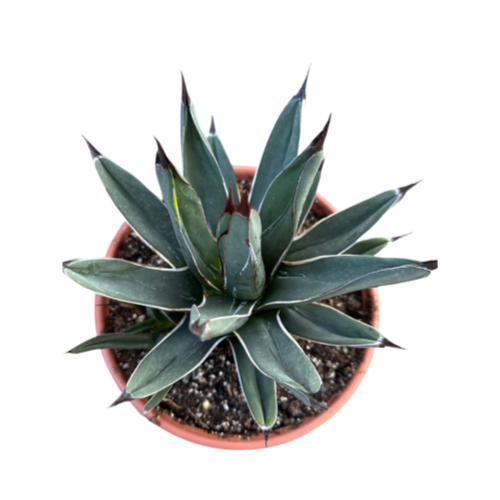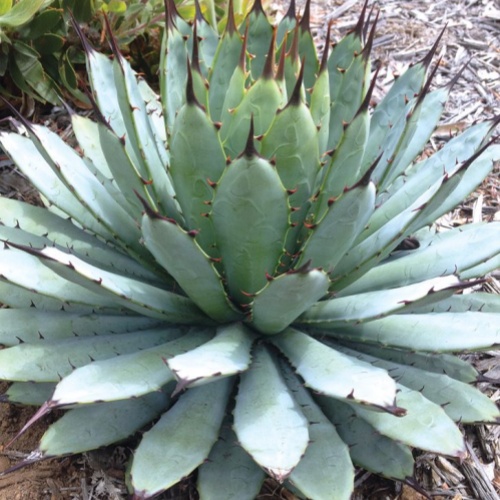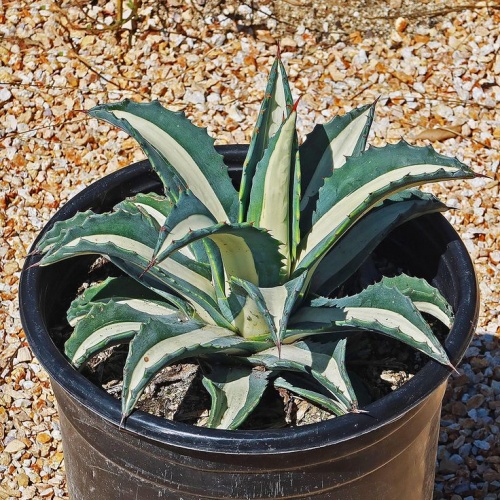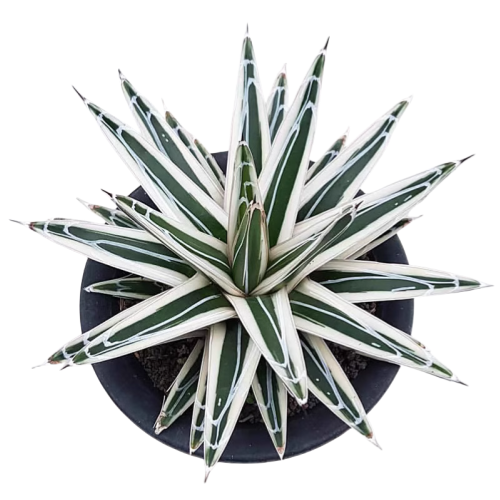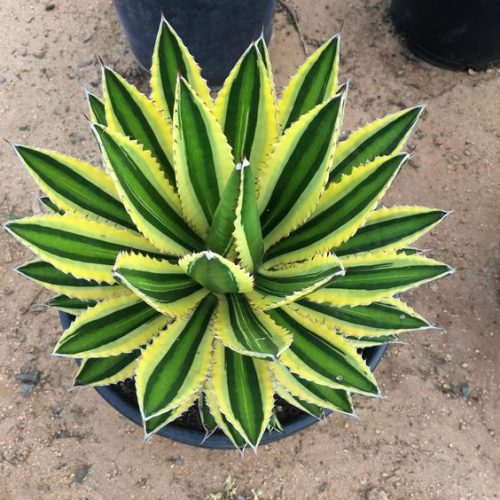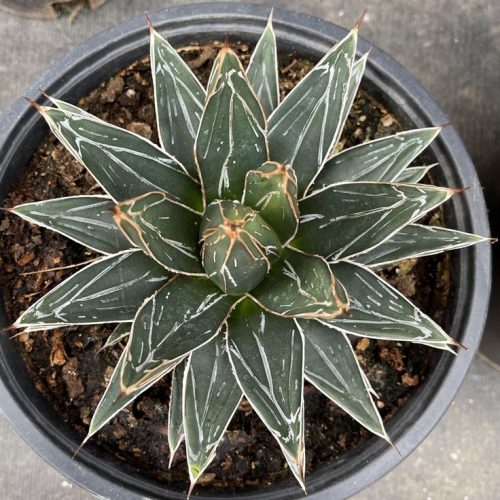Agave Titanota
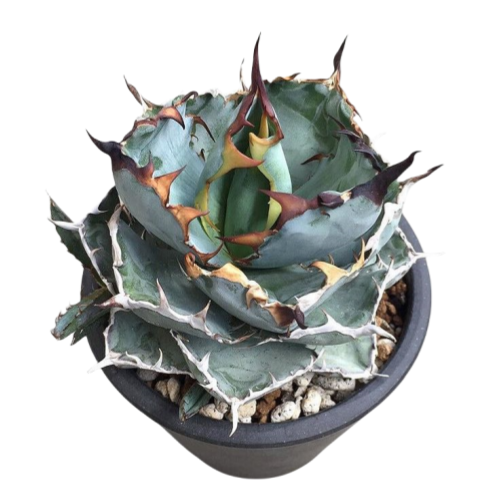
- Botanical Name: Agave Titanota
- Family Name: Agavaceae
- Stems: 2-3 Feet
- Temperature: 20°C~25°C
- Others: Light-loving, cold-resistant, dry.
Overview
Product Description
Agave Titanota: The Chill-Proof Beauty of the Plant World
Agave Titanota : Beauty in Bloom
Origin and Plant Type
Agave titanota, commonly known as the “Oaxacan Agave,” originates from the states of Oaxaca and Puebla in Mexico. This medium-sized to small agave can reach a maximum diameter of up to 1 meter, while smaller varieties range from a few centimeters to about 40 centimeters in diameter. Its unique shape and growth characteristics make it a notable member of the Agavaceae family.
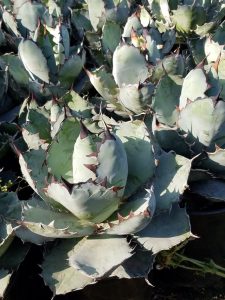
Agave Titanota
Leaf Shape and Color Characteristics
The leaves of Agave titanota are thick and relatively short, with a shape resembling a diamond and arranged in a rosette at the base. The leaf edges feature sparse red teeth, and the tips have deep brown sharp spines. In terms of color, this plant exhibits diversity; some varieties have leaves that are white or light blue, while others are dark gray-green or pale blue, adding significant ornamental value in gardening.
Size and Flowering Period
Mature Agave titanota plants can produce approximately 20 to 30 spiny leaves, with each leaf measuring between 30 to 60 centimeters in length and 12 to 15 centimeters in width. The flowering period occurs in summer, producing yellow-green flowers that bring a refreshing touch of color to the hot summer months.
Agave titanota: The Majestic Cycle of Life and Legacy
Growth and Blooming Cycle
Agave titanota, this magnificent plant, is known for its once-in-a-lifetime flowering characteristic. In their lifetime, they bloom only once during their maturity phase, which spans approximately 10 to 30 years, after which the plant reaches the end of its life. As they approach maturity, they accumulate a rich reserve of carbohydrates within their tissues to fuel the rapid development of their spectacular flower spike, marking their final, grand display.
Cold Tolerance and Growth Conditions
Agave titanota demonstrates a certain level of cold tolerance, capable of withstanding light frosts. However, they prefer warmer climates, especially in dry conditions, and should avoid prolonged freezing temperatures to ensure healthy growth. This plant has specific requirements for its growing environment, favoring sunny locations and thriving in various soils as long as they have good drainage.
Soil Preferences and Propagation
Although most Agave titanota are not particular about soil pH, varieties growing in limestone soils flourish better under neutral to alkaline conditions. In terms of propagation, this plant can be reproduced both through seeds and asexually through offsets or suckers, offering garden enthusiasts a variety of propagation options.
Agave titanota: Surviving the Ice Age with Style
-
Cover Protection: Use cloth or burlap to cover the plant, isolating it from cold temperatures and protecting it from frost damage.
-
Adjust Watering: Water the plant only once every 3-4 weeks during dormancy to prevent root rot.
-
Utilize Microclimates: Position Agave titanota near heat-retaining structures like buildings or rocks to provide additional warmth.
-
Indoor Protection: Move the plant indoors before the first frost in late autumn to avoid damage from freezing temperatures.
-
Light and Temperature: Ensure there is bright, indirect sunlight indoors and maintain a temperature between 60°F to 75°F (15°C to 24°C) to keep the plant comfortable and thriving throughout the winter.
-
Avoid Overwatering: Be cautious not to overwater, which can lead to plant health issues such as yellowing leaves, softened texture, and signs of root rot.
-
Drainage: Make sure there are enough drainage holes in the pots to prevent water from accumulating at the bottom, which can cause serious problems。
By implementing these strategic measures, we can ensure that Agave titanota not only survives but also thrives in the face of extreme cold, maintaining its majestic presence and continuing to be a testament to the resilience of nature’s beauty。





